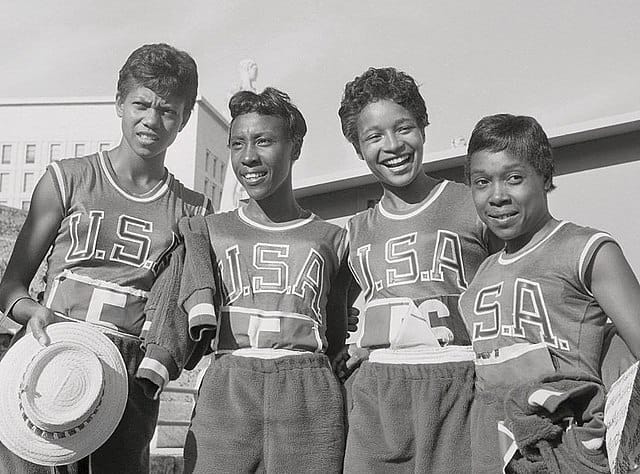
Hey {{first_name|Hue-man}}!
Wilma Rudolph wasn’t just fast—she was history in motion.
Born prematurely into a family of 22 children, Wilma’s early years were filled with challenges that would’ve sidelined most people before the race even began. At just 4 years old, she contracted polio—a disease that left her with a twisted leg and little hope from doctors that she’d ever walk again. But Wilma? She had other plans.
With years of physical therapy, most of it led by her own mother at home because hospitals in Tennessee wouldn’t treat Black children equally, Wilma slowly trained her body to move again. First a brace. Then a shoe. Then a limp. Then—nothing. She was walking by age 12. Running not long after.
And not just running—winning.
Decode the Zeitgeist with 1440
Every week, 1440 zooms in on a single society-and-culture phenomenon—be it the rise of Saturday Night Live, Dystopian Literature, or the history of the Olympics—and unpacks it with curiosity-driven rigor. You’ll get a concise read grounded in verified facts, peppered with thought-provoking context and links for deeper exploration. No partisan angles, no fear-mongering—just the stories, trends, and ideas shaping how we live, work, and create.
By 16, she was an Olympic bronze medalist. But it was the 1960 Summer Olympics in Rome where she truly made history. Wilma Rudolph became the first American woman to win three gold medals in track and field at a single Olympics. She won the 100m, 200m, and anchored the 4x100m relay—all while running with grace, power, and a quiet defiance against the odds.
Why Her Story Still Moves Us

Wilma didn’t just break records. She broke barriers.
She was a Black woman competing—and dominating—on an international stage during a time when both her race and her gender were used as reasons to keep people in the margins. In the segregated South, victory meant more than medals. It meant visibility.

When she returned home from the Olympics, she insisted that her celebratory parade in Clarksville, Tennessee be integrated—the first such event in the town’s history. She continued speaking out and mentoring young athletes long after she left the track.
Wilma Rudolph showed the world what resilience looks like when it runs toward freedom, not away from it.
A Final Lap

Wilma died in 1994 at just 54 years old, but her legacy lives on in every runner who pushes beyond limits, in every girl who laces up her shoes, and in every Black child who dares to outrun history.
“The triumph can’t be had without the struggle.” — Wilma Rudolph
Wilma’s story reminds us that sometimes the most powerful revolutions don’t start with a mic or a march—but with a stride.
Her victories weren’t just personal—they were political, poetic, and prophetic.
As we look back, we also look forward—to every young Black child being told what they “can’t” do. May they find a little of Wilma’s fire in their feet.
✊🏽 Stay rooted. Stay radiant.
We’ll see you next week in History in Hue.
-Gio


